No Longer a Guest in One’s Own Home:
How the Houbi Huang Family Keeps the Hearth Warm in Their Historic House
“After years away, many young people feel like guests in their own hometowns, while the next generation lacks any genuine lived connection to the land.” So, we started restoring the vacant rooms in the historic house. This provides a comfortable place for the Huang descendants to stay and serves as a way for them to reconnect with their heritage.” Mr. Huang Ming-chih’s tone, as he describes the purpose of restoring the historic house, reveals a deep desire to sustain the emotional ties between his family and their land.
From overcoming the immense challenge of registering the historic house as a cultural heritage to establishing a foundation for its ongoing upkeep, the Huang family has done more than keep the lights on for decades. They have sustained their ancestors’ profound affection for Houbi District, channeling their own spirit of generosity into the foundation’s very mission. For a special publication, the X-Basic Planning team met with the Huang historic house’s old house managers, Mr. Huang Ming-chih and Ms. Tsai Shu-chuan, to learn how they have preserved the building through time and change, maintaining it as a unifying family home.
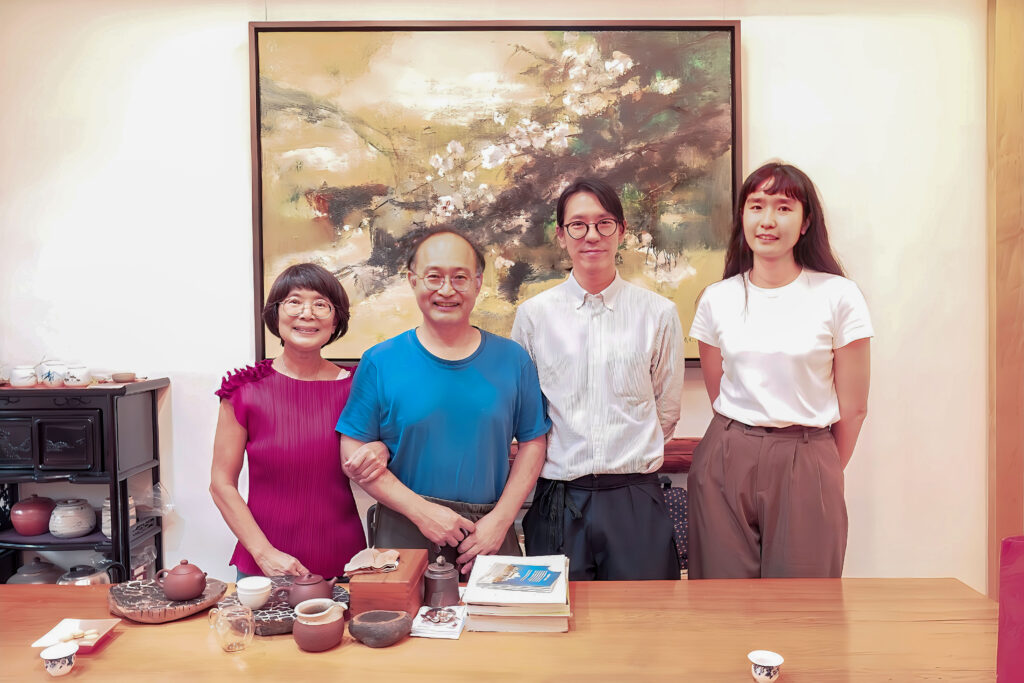
Where Time Endures: A Century-Old Home
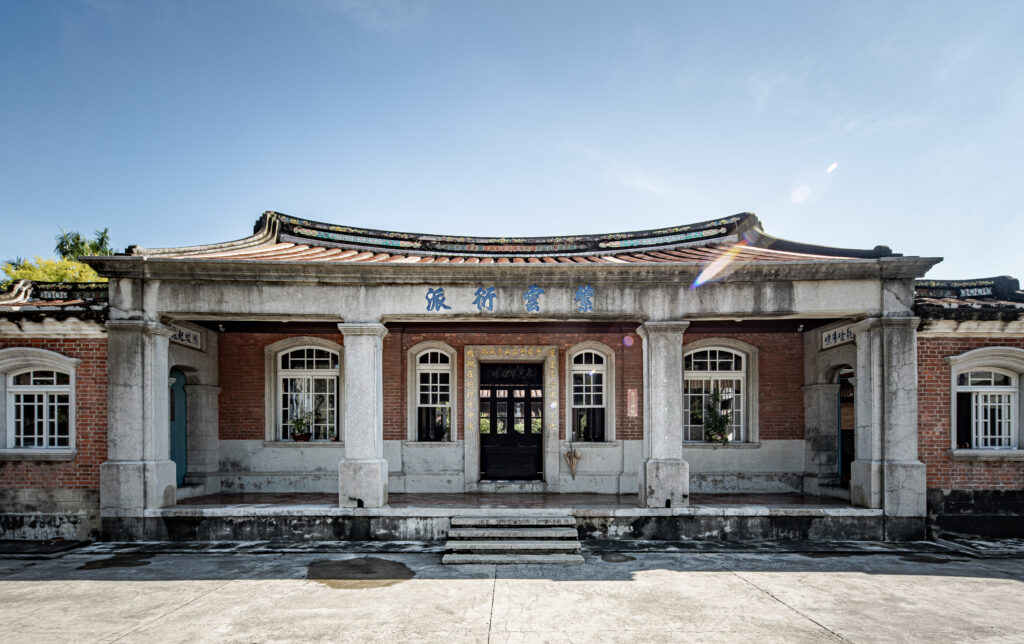
Though it presents as a classic seven-bay, three-section courtyard house, the 1926 Huang family historic house in Houbi reveals a fusion of architectural styles upon closer inspection of its decorative elements. It merges a Han-style courtyard with traditional ornamentation like cut-and-paste porcelain and wood carvings, alongside Japanese-Western fusion elements such as rounded ‘Taisho windows,’ hexagonal columns, washed stone finish, and painted ceramic tiles. Together, they reflect the area’s evolving eras and bear witness to the Huang family’s deep-rooted legacy in the community.
The opening of the Jianan Canal during the Japanese colonial period transformed the plains with abundant water, prompting the four merchant brothers Huang Mou, Huang Tung, Huang Chen-lung, and Huang Chen-te to found the ‘Huang Chen-hsing Joint Stock Company’ in Houbi and expand their business. The courtyard house they subsequently built became the Huang family’s home for generations. The Huang family’s influence extended beyond business; they actively contributed to local development—building clinics, donating land for roads—and became a cornerstone family of the Jianan region.
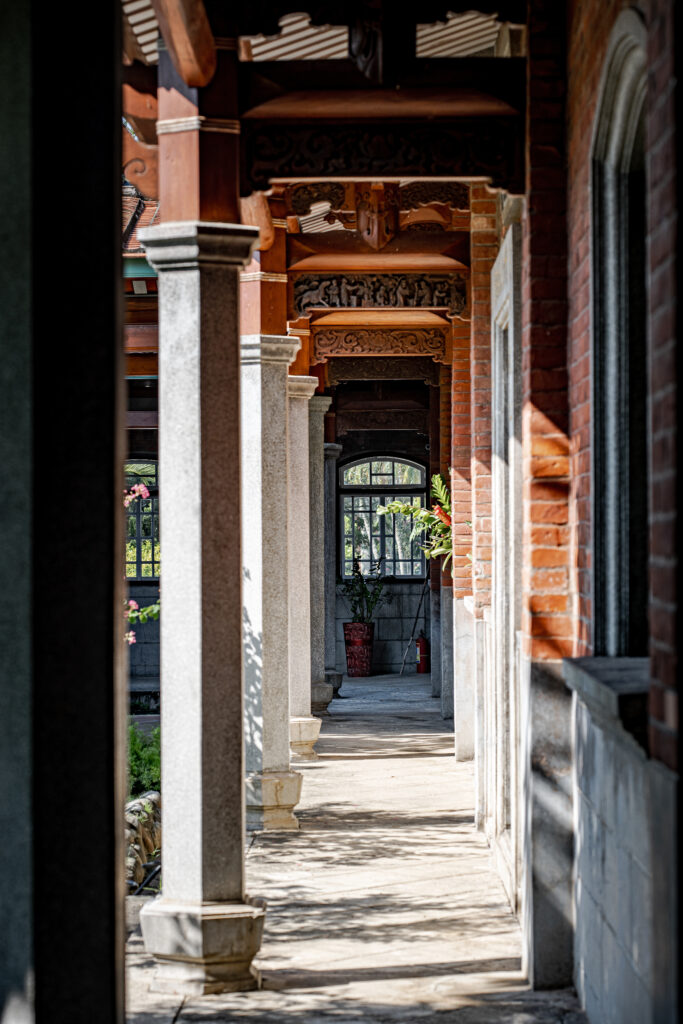
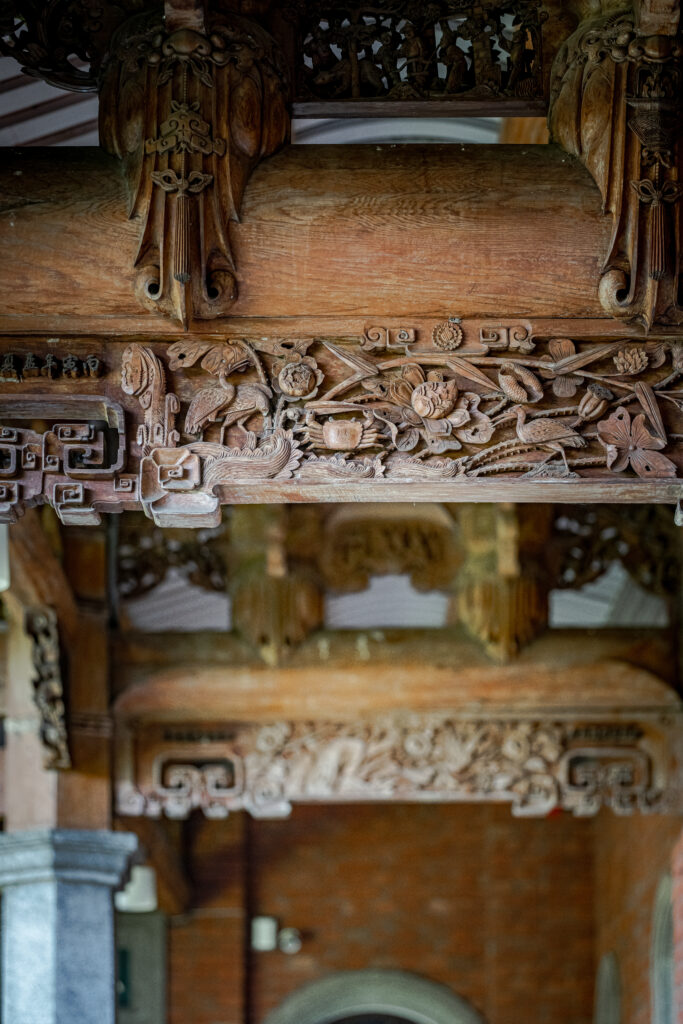
The Drive to Preserve a Family’s Roots
Over time, as the Huang family expanded and younger generations sought opportunities elsewhere, their emotional connection to the historic house gradually faded. As Mr. Huang Ming-chih observed: “After years away, many young people feel like guests in their own hometowns, while the next generation lacks any genuine lived connection to the land.” To honor their family heritage, Mr. Huang Ming-chih’s father’s generation painstakingly built a family consensus to apply for cultural heritage status. Their success came in 2008 with its designation as a Tainan County historic site (now a municipal historic site), securing the legal framework needed to preserve the old house.
The daily care and maintenance of the house by the Huang family has never ceased since then. Beyond the full-time staff who handle daily cleaning and yard work, the family brings in landscapers during typhoons to manage trees and inspect for structural damage from leaks, pests, or plants.
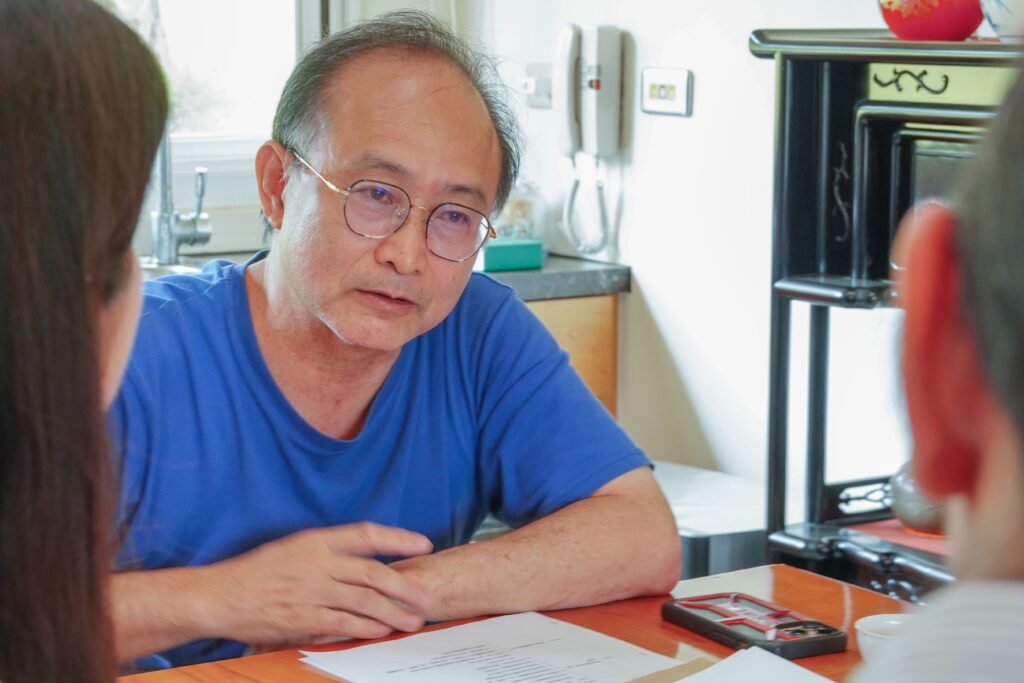
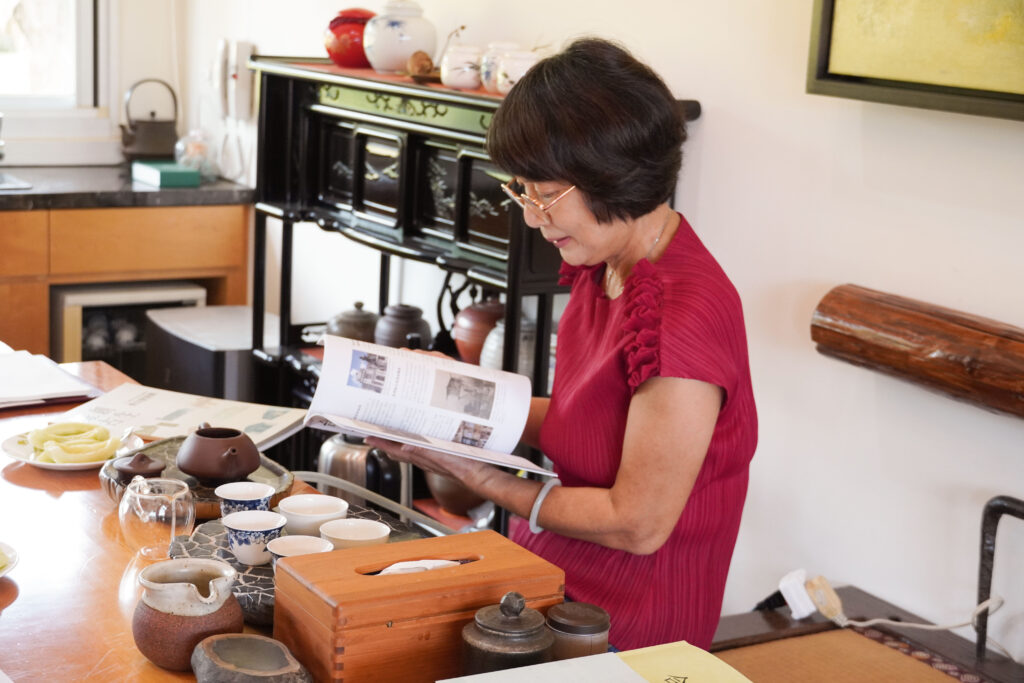
“Since brick and wood houses are vulnerable to leaks, we schedule roof inspections by craftsmen every four to six months.” Mr. Huang Ming-chih jokes that he spent his childhood climbing up and down the roof, which gave him remarkable skill at scaling the house. In his younger days, he handled roof inspections himself, but now, with age, he leaves the task to professionals—albeit reluctantly. Despite their solid appearance, the roof ridges are made of unreinforced cement and are therefore vulnerable to seismic cracking and subsequent water seepage, a flaw that demands particular focus.
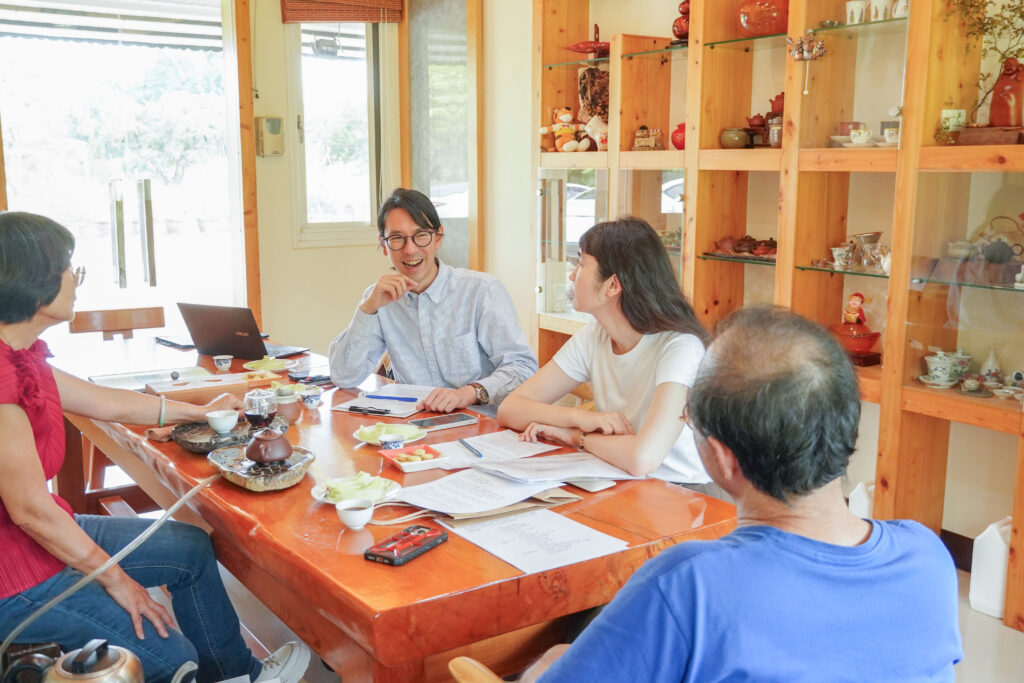
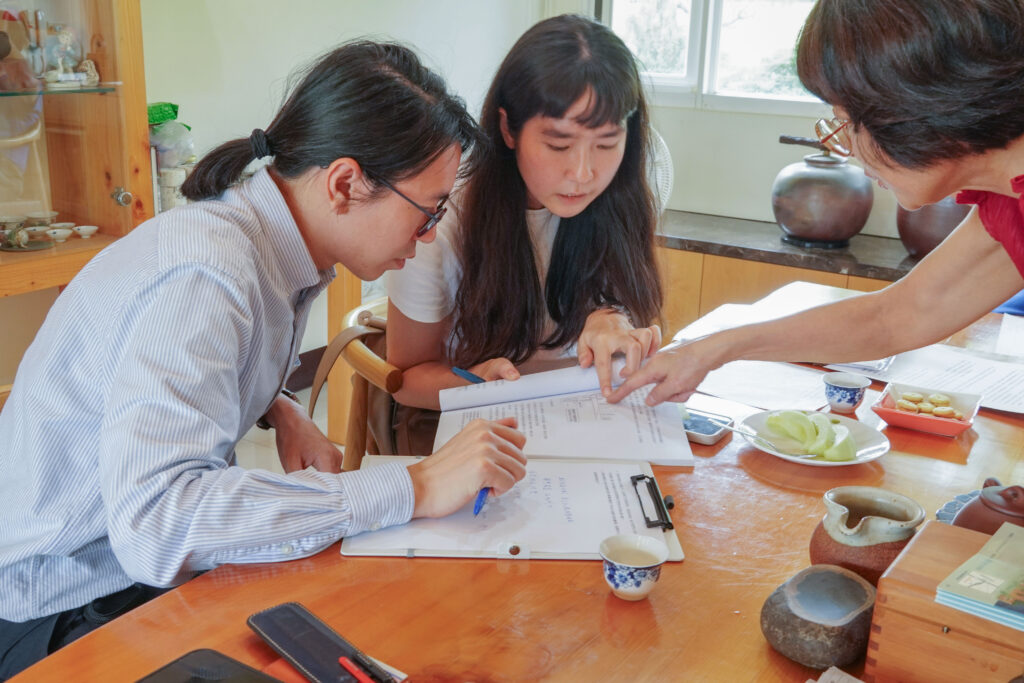
Sustaining Communities and Heritage
The regular maintenance and conservation costs for a 6,000-square-meter ancestral compound pose a major financial challenge. To ensure its preservation, the Huang family founded the “Huang Family Historic House Cultural Arts Foundation” in 2010, focusing on the building’s upkeep and community development. Although its use is bound by corresponding regulations, this mechanism establishes a funding source that is both more stable and flexible than public sectors, making it fully capable of meeting routine expenses and minor repair needs.
Beyond maintaining the historic house, the foundation allows the Huang family to extend their ancestors’ spirit into the community by funding local scholarships, international tennis competitions, and artistic projects, thereby nurturing diverse development in Houbi. What began as informal musical gatherings among friends, initiated by Mr. Hsu Wen-lung and Mr. Huang Kun-hu, evolved into the annual Mid-Autumn “Historic House Concert.” The event now unites traditional and contemporary, local and international artists, celebrating the rich diversity of Taiwanese culture. The Mid-Autumn Concert at the Houbi Huang Family Historic House, now in its 27th year, has become an iconic event that attracts island-wide attendance.
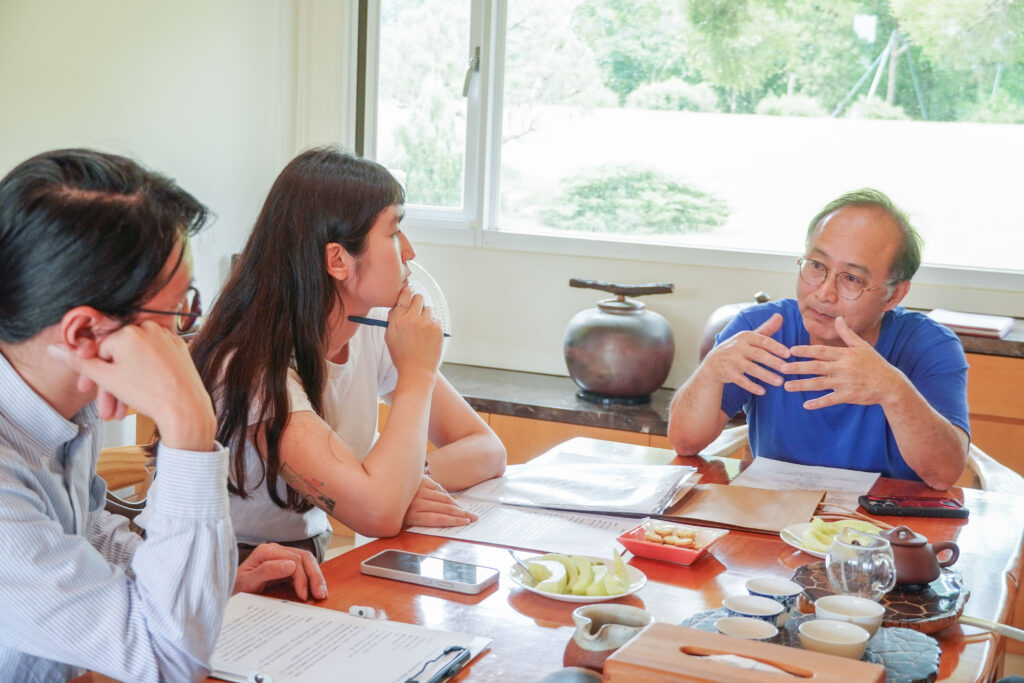
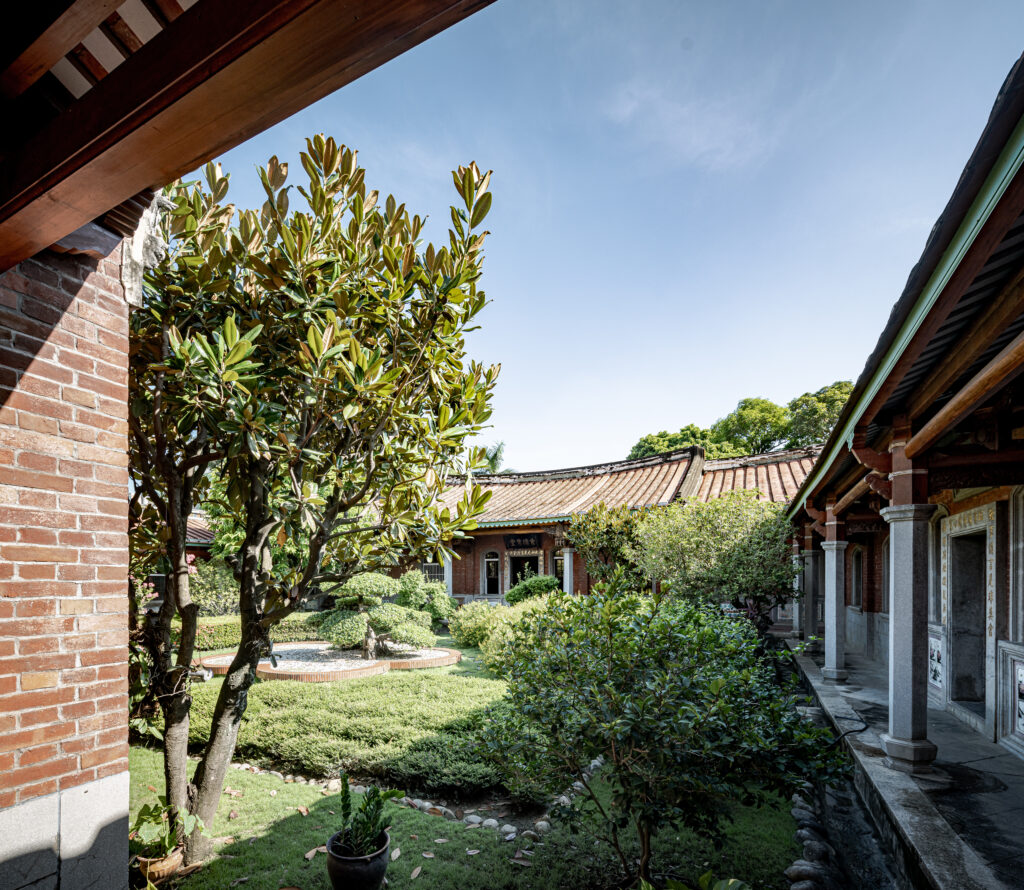
The Foundation’s vision extends past physical maintenance to strengthening family ties and deepening local engagement. Mr. Huang Ming-chih mentioned they will convert rooms in the historic house into exhibitions, offering the public a systematic display of heirlooms and documents from past generations. To make homecomings feel authentic, the foundation will renovate vacant rooms, creating a space for family and friends to stay. This allows them to relive past moments and reclaim the diluted sense of belonging.
The Houbi Huang Family Historic House is neither a commercial enterprise nor a public museum; its heart remains that of a family home. From its foundation as a ‘home,’ this place naturally extends into roles of cultural inheritance and community connection, creating a unique venue for shared memory and fellowship.
The full story of the “Houbi Huang Family Ancestral House”, along with more examples of old house revitalization, will be featured in X-Basic’s upcoming book, set for release in August. Stay tuned!
